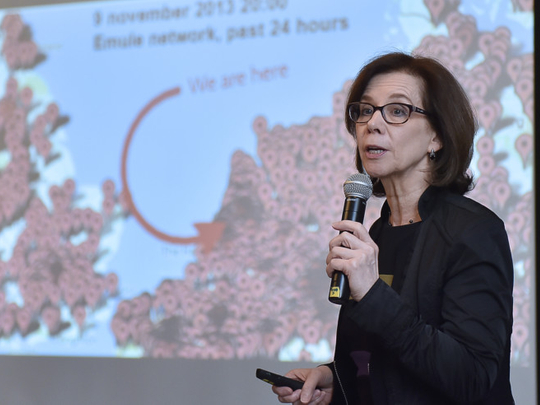
Dubai: The Arab world needs to explicitly educate children on appropriate and inappropriate sexual behaviour from pre-school and higher to protect them from sexual predators, many of whom could also be children, an expert said.
Jane Larsson, Executive Director of The Netherlands-based Council of International Schools and symposium speaker at the 5th Arab Regional Conference on the Prevention of Child Abuse and Neglect conference, said educators and parents need to explicitly teach children how to protect themselves from being abused.
Larsson gave this recommendation as she shared the learnings of the International Task Force on Child Protection at the conference on Tuesday.
“Age-appropriate, comprehensive sexuality education is a must starting in pre-school is needed here and everywhere,” Larsson told Gulf News.
“People who abuse children don’t just start doing that when they’re adults. In fact, 70 per cent of the abuse that occurs before the age if 18 is perpetrated by children, older children against younger children,” Larsson added, quoting international statistics.
Larsson said based on their research and interviews with leading forensic psychologists, adults who abuse children start committing these inappropriate sexual behaviour when they reach puberty.
“There are children who start experimenting with their sexuality in a problematic way. The age difference is usually three years between older children [perpetrator] to younger children [victim]. They could be siblings, peers, there’s no specific relationship but it’s someone known to them.”
Local statistics from UAE authorities, however, does not reflect this as most child victims in Abu Dhabi and Dubai reported being abused majority by domestic workers or adults. It does not mean, though, that such cases do not exist.
Once these children who sexually abuse other children grow up, they can continue doing the crime in the shadows before they are caught. Teaching educators how to spot these behaviours at an early age is crucial.
“That’s a profound question for educators. If you realise that 70 per cent of the abuse is going to start happening in these years [puberty], what’s our responsibility as educators to identify kids who are at risk for perpetrating the abuse?”
Sometimes, the perpetrators could also be educators who started abusing children while they were young. They thrive in a largely mobile population where they can just move from one country to the next to commit a string of abuse over the years without getting caught.
Larsson referred to a current case of an educator who was accused of committing sexual crimes on students in four schools, one of which was in Saudi Arabia.
Worse, Larsson said the prevalence of child pornography is feeding this crime. These obscene materials can be downloaded from the “Dark Net”, a part of the internet not generally accessible to the public where crimes and covert activities are done.
As part of their investigation in The Netherlands, they plugged in live in the Dark Net and the red dots showing people downloading child pornography files flooded the screen.
“This is not just the Netherlands. I’m going to check the UAE and the region. They’ve told me it’s just as high. It’s the same everywhere.”
Larsson said working together to remove cultural differences, which is the biggest barrier to reporting abuse, is important in combatting such crimes.
“We need to have a shared definition of what child abuse is and having everyone understand what it is and how it’s going to be dealt with in the community.”












